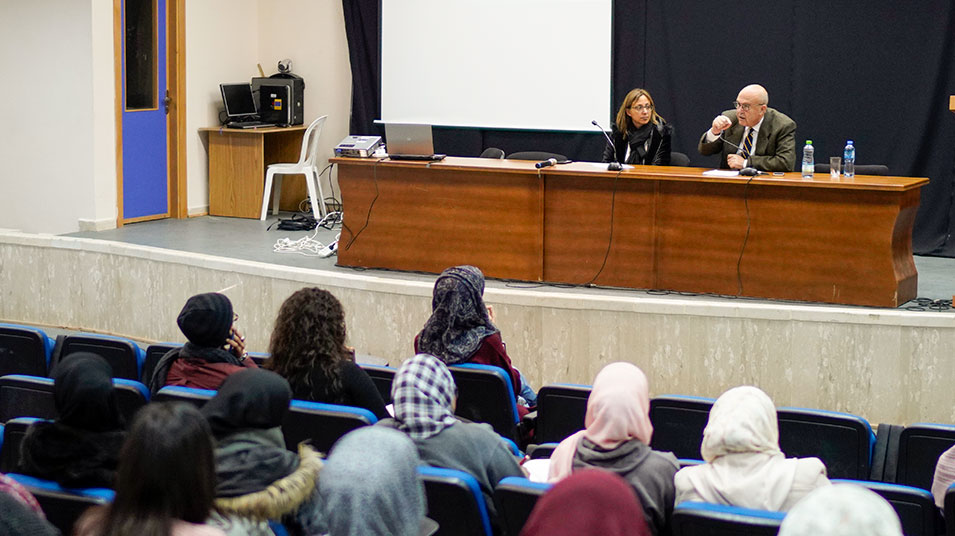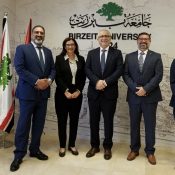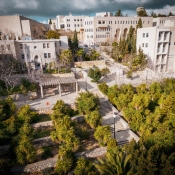Lecture explores ongoing Kashmir conflict
Birzeit University’s Ibrahim Abu-Lughod Institute of International Studies held a lecture titled “Kashmir: The open conflict” on December 7, 2019, featuring Ali Jarbawi, the director of the master’s program in international relations.
Jarbawi expressed that the case of Kashmir has gained in interest after the Indian government in August 2019 revoked the special status that until then had been accorded to Indian-administrated Kashmir in the Indian constitution, leading to notable regional disturbances.
In August 2019, India’s parliament voted to approve the change in status for Jammu and Kashmir state. The reorganization bill increases New Delhi's authority over the region, changing it from an autonomous state to a union territory.
According to Jarbawi, the 72-year-old conflict in Kashmir is one of the most dangerous and complicated conflicts in modern history. India and Pakistan have been fighting over Kashmir since both countries gained their independence in 1947. India took control of one state, called Jammu and Kashmir, whereas Pakistan controls the two areas Azad Kashmir and Gilgit-Baltistan that make up the northern and western parts of the region.
Tracking the development of the conflict, Jarbawi focused on the role of geopolitics in fueling the conflict for seven decades. He attributed the complexity of Kashmir’s conflict to balance-of-power considerations between Global South countries, the religious and cultural diversities in Kashmir, and the population’s divided loyalty between Pakistan and India, all of which have created ideological warfare between the various diverse groups.
Jarbawi explained the strategies pursued by India and Pakistan to win over Kashmir. He stated that some of them are motivated by geographical considerations, as all rivers in Pakistan are coming from Kashmir, and Pakistan needs access to these rivers. The Pakistani government also believes that it should control Kashmir because it has a Muslim majority. To achieve its interests, Pakistan has been seeking international support for its alleged rights in Kashmir.
India, however, Jarbawi continued, is designing its policies and strategies in the attempt to keep international eyes away from the conflict. He explained that India seeks to prevent any international intervention in Kashmir, striving to render the conflict as an Indian domestic affair. Thus, Jarbawi added, India is sending troops to be stationed in Kashmir, using its military power.
Jarbawi also demonstrated the failure of the international community, represented by the United Nations, in dealing with Kashmir. He pointed out that some resolutions and agreements have complicated matters. One such agreement is the Simla Agreement (1972) that stipulates that negotiations may be bilateral only, thus preventing international resolutions from contributing to a resolution of the conflict. Jarbawi cited this as one of the main reasons why the issue has remained a continuous and open contention until this day.







